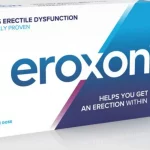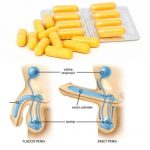List Of Herbs and Drugs That Cause Erectile Dysfunction

Erectile dysfunction (ED), also known as impotence, refers to the consistent inability to achieve or maintain an erection sufficient for sexual intercourse. It is a common condition that affects men of various ages, although it is more prevalent in older men. ED can have a significant impact on a man’s self-esteem, relationships, and overall quality of life.
It is estimated that approximately 5% to 20% of men worldwide experience some degree of erectile dysfunction. The likelihood of experiencing ED increases with age. According to a study published in the Journal of Sexual Medicine, the prevalence of complete ED in men aged 40-70 years was estimated to be around 5% to 15%, with mild to moderate ED affecting an additional 10% to 30% of men in this age range.
While there are various factors that can contribute to ED, including physical and psychological causes, certain medications and herbs have also been associated with this condition. Understanding the potential side effects of medications is essential for individuals and healthcare professionals to make informed decisions. In this article, we will discuss a list of drugs and herbs that have been linked to erectile dysfunction.
List Of Drugs That Cause Erectile Dysfunction
The list of drugs that can cause erectile dysfunction includes:
1. Antidepressants:
• Selective serotonin reuptake inhibitors (SSRIs): Drugs like fluoxetine (Prozac), sertraline (Zoloft), and paroxetine (Paxil) are commonly prescribed for depression and anxiety. They can cause sexual side effects, including difficulty achieving or maintaining an erection.
• Tricyclic antidepressants (TCAs): TCAs such as amitriptyline (Elavil) and imipramine (Tofranil) are older classes of antidepressants that can also affect sexual function.
2. Antihypertensive Medications:
• Beta-blockers: Drugs like propranolol (Inderal) and metoprolol (Lopressor) are commonly used to treat high blood pressure and heart conditions. These medications work by blocking certain receptors in the body, which can interfere with the normal erectile response.
• Thiazide diuretics: Hydrochlorothiazide (Microzide) is a commonly prescribed diuretic for managing high blood pressure. It may lead to decreased sexual function and contribute to ED.
3. Antipsychotics:
• Antipsychotic medications are used to manage psychiatric disorders such as schizophrenia and bipolar disorder. Some antipsychotics, including risperidone (Risperdal), quetiapine (Seroquel), and haloperidol (Haldol), have been associated with sexual side effects, including ED.
4. Hormonal Medications:
• Androgen deprivation therapy (ADT): ADT is commonly used in the treatment of prostate cancer. It reduces testosterone levels, which can result in various sexual side effects, including ED. Medications like leuprolide (Lupron) and goserelin (Zoladex) are examples of GnRH agonists used in ADT.
• Gonadotropin-releasing hormone (GnRH) agonists: These medications also reduce testosterone levels and are used in the treatment of certain conditions. Triptorelin (Trelstar) is an example of a GnRH agonist.
5. Antiulcer Medications:
• Histamine H2-receptor antagonists: Drugs like cimetidine (Tagamet) and ranitidine (Zantac) are used to reduce stomach acid production in conditions like ulcers and gastroesophageal reflux disease (GERD). These medications have been associated with sexual side effects, including ED.
6. Antiepileptic Drugs:
• Some antiepileptic drugs, such as phenytoin (Dilantin) and carbamazepine (Tegretol), can affect sexual function and potentially contribute to ED.
7. Other Medications:
• Opioids: Medications such as oxycodone (OxyContin), morphine, and others that are used for pain management can impact sexual function, including causing ED.
• Benzodiazepines: Drugs like diazepam (Valium) and alprazolam (Xanax) are commonly prescribed for anxiety and can also have sexual side effects, including ED.
Herbs That Can Cause Erectile Dysfunction
While herbs are often associated with various health benefits, it’s important to note that some herbs, when used in certain forms or excessive amounts, may have potential side effects, including the potential to cause or contribute to erectile dysfunction (ED). Here are a few herbs that have been reported to have the potential to affect sexual function:
1. Yohimbe: Yohimbe is derived from the bark of an African tree and is sometimes used as an herbal remedy for ED. However, it contains an active compound called yohimbine, which can have stimulant effects on the central nervous system and may lead to increased heart rate, high blood pressure, and anxiety. These effects can potentially contribute to or exacerbate ED.
2. Ginkgo Biloba: Ginkgo biloba is a popular herbal supplement that is believed to improve circulation and cognitive function. While it is generally well-tolerated, there have been rare reports of ginkgo biloba causing sexual side effects, including ED, in some individuals.
3. Ginseng: Ginseng is a widely used herbal remedy believed to have various health benefits, including potential aphrodisiac effects. However, some studies suggest that excessive or prolonged use of ginseng may interfere with normal sexual function and contribute to ED.
4. St. John’s Wort: St. John’s Wort is an herb commonly used to alleviate symptoms of depression. While it is generally safe, there have been reports of sexual side effects, including ED, associated with its use. However, more research is needed to establish a clear link.
It’s important to understand that the effects of herbs can vary among individuals, and scientific evidence regarding their impact on sexual function may be limited or inconclusive. If you are experiencing erectile dysfunction or have concerns about the potential effects of herbs on your sexual health, it is advisable to consult with a healthcare professional. They can provide personalized guidance based on your specific circumstances and help you make informed decisions.
How To Manage Drug-Induced Erectile Dysfunction
Managing drug-induced erectile dysfunction (ED) involves a combination of strategies, including the following:
1. Consult with your healthcare provider: If you suspect that a medication is causing your ED, it is essential to consult with your healthcare provider. They can evaluate your situation, review your medication regimen, and determine if any changes or adjustments are necessary. It’s important not to stop or modify your medication without medical guidance.
2. Explore alternative medications: In some cases, your healthcare provider may be able to switch you to an alternative medication that has a lower risk of causing or exacerbating ED. Depending on the condition being treated, there may be other options available that are equally effective but have a reduced impact on sexual function.
3. Adjust medication dosage: In certain situations, adjusting the dosage of the medication might help alleviate the side effects. Your healthcare provider can assess whether a lower dose could still effectively manage your condition while minimizing the impact on sexual function.
4. Combination therapy: Depending on your specific circumstances, your healthcare provider may suggest a combination of medications or treatment approaches that can address both your health condition and the ED. This could involve adding another medication to counteract the sexual side effects or incorporating other treatments for ED.
5. Lifestyle modifications: Implementing healthy lifestyle changes can be beneficial in managing drug-induced ED. This includes regular exercise, maintaining a healthy weight, consuming a balanced diet, avoiding excessive alcohol consumption, quitting smoking, and managing stress levels. These lifestyle modifications can help improve overall sexual health.
6. Psychological support: Dealing with drug-induced ED can be emotionally challenging. Seeking support from a therapist or counselor can be beneficial in managing any psychological distress or anxiety related to the condition. They can provide guidance, coping strategies, and help address any relationship issues that may arise.
7. Consider alternative treatments for ED: Depending on your situation and the underlying cause of your ED, your healthcare provider may recommend alternative treatments. These may include oral medications specifically designed to treat ED, such as sildenafil (Viagra), tadalafil (Cialis), or vardenafil (Levitra), or other options like vacuum erection devices, penile injections, or penile implants. These treatments should be discussed with your healthcare provider to determine suitability and safety.
Remember, managing drug-induced ED requires open communication with your healthcare provider. They can guide you in finding the most appropriate approach to balance the management of your health condition while minimizing the impact on sexual function.





